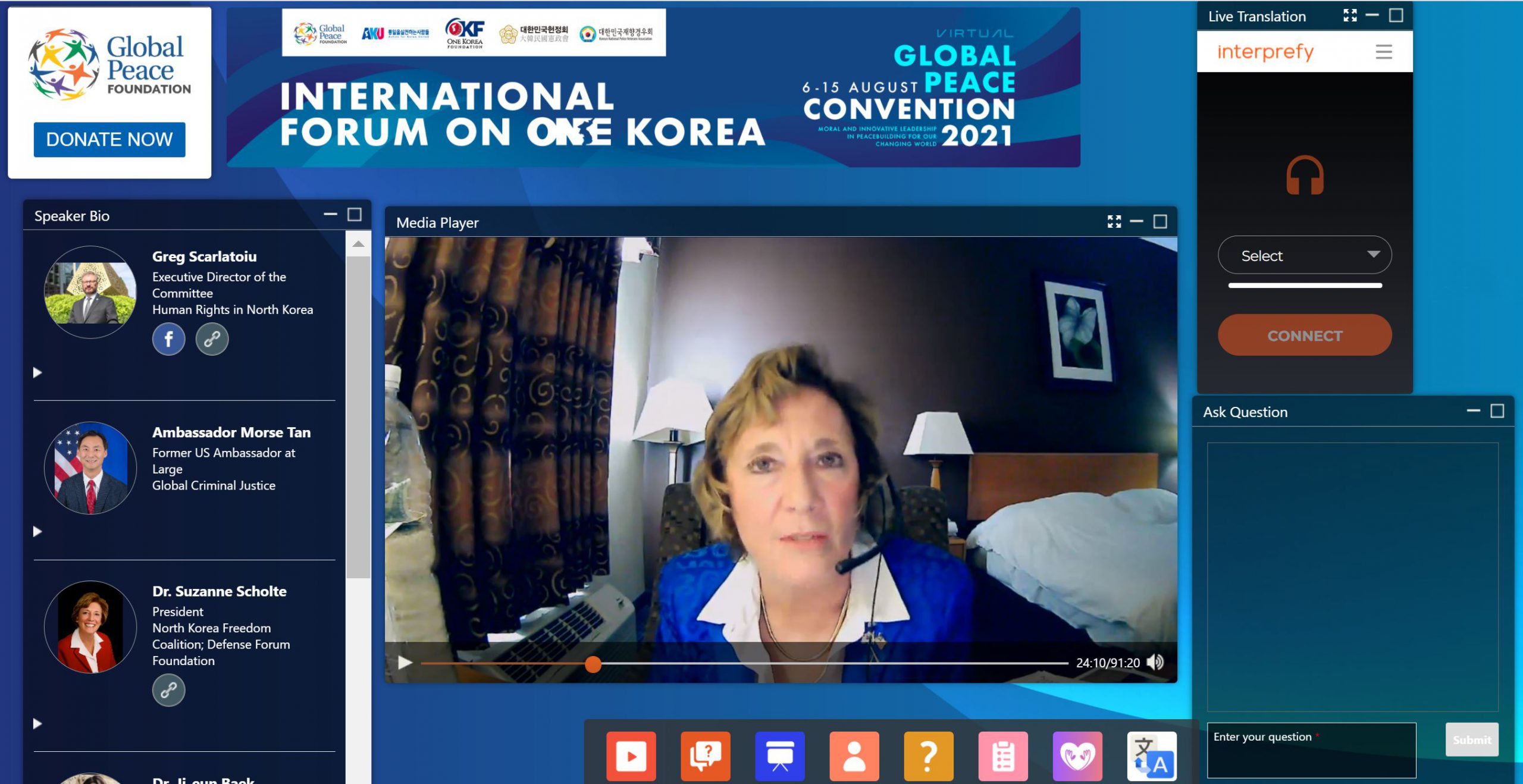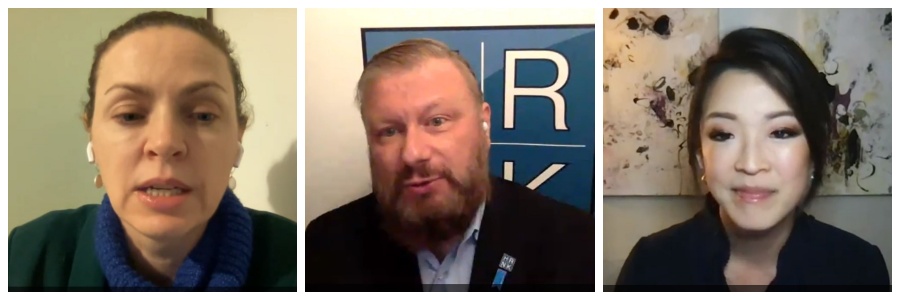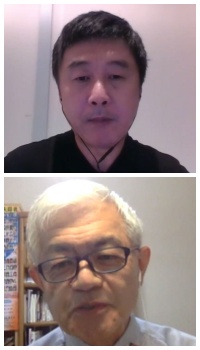Korea experts and human rights advocates proposed robust efforts to promote human rights, free access to information and family reunification at a major international forum on August 8. Convened in two sessions, Free Flow of Information and Family Reunions, the Human Rights forum was organized as part of the August 6-15 Global Peace Convention, “Moral and Innovative Leadership in Peacebuilding for Our Changing World.”
A flagship bi-annual convening of the Global Peace Foundation, the 2021 convention is being hosted virtually due to Covid restrictions, with eight tracks and some 30 sessions highlighting values-based peacebuilding, advances toward a free and unified Korea, innovations in education, women and youth leadership, and religious freedom advocacy.

Suzanne Scholte, President of the North Korea Freedom Coalition
Session 1 moderator Greg Scarlatoiu, Executive Director of the Committee for Human Rights in North Korea, said effective responses to the North Korean regime’s human rights abuses are complicated by the global pandemic, intensifying US-China relations and the failure of denuclearization and economic reform initiatives toward the DPRK. “Providing the North Korean people with free information is a critical means of effecting a peaceful fundamental transformation of the North Korean regime,” Scarlatoiu said.
Much of the session was dedicated to the strict controls of information in North Korea, with the regime utilizing misinformation and taking information out of context to psychologically shape the inner world of its citizens and proscribe correct behavior. “If they do not believe or if they harbor doubt, the state ensures that they know to behave as if they do believe,” said Dr. Sandra Fahy, Associate Professor of Social and Cultural Anthropology at Sophia University.

From left: Dr. Sandra Fahy, moderator Greg Scarlatoiu, and Dr. Ji-eun Baek.
Suzanne Scholte, President of the North Korea Freedom Coalition and one of the world’s leading activists in the North Korea human rights movement, gave a detailed, rapid-fire description of the ingenious ways North Korean defectors and human right advocates outwit North Korean attempts to block outside information. She said efforts are underway “by air, land and sea” to bring information to the North, including balloon launches along the DMZ with information about Kim’s crimes, excerpts of the UN Declaration of Universal Human Rights, and descriptions of freedoms and prosperity in the South.
“We know these leaflets are effective because we hear from defectors who have picked them up,” Scholte said. “Even North Korean soldiers ordered to gather them up can’t help but peek at the content of what’s in these.”
Information campaigns include drones, USB drives, rice bottles with rice and parasitic medicine that arrive on North Korean beaches with ocean currents, and above all radio broadcasts, all critical to bring change in North Korea.
“There are defectors who said the most powerful thing, the most valuable thing to change the North Korea regime, is information.” — Dr. Sandra Fahy
Other distinguished presenters, including Cheol-hwan Kang, a North Korean political prisoner and author of Aquariums of Pyongyang; Ambassador Morse Tan, Former US Ambassador at Large for Global Criminal Justice; and Dr. Kazuhiro Araki, President of the Commission on Missing Japanese Probably Related to North Korea, presented riveting accounts of atrocities committed by the North Korea regime.

Top: Cheol-hwan Kang Below: Dr. Kazuhiro Araki
They called for an international tribunal to prosecute the crimes against humanity committed by the regime, with a truth and reconciliation committee to bring closure to the era of dictatorship following regime change.
Many panelists also decried the actions of the Moon government in South Korea, which has outlawed many of the ways that North Koreans gain access to information, calling the laws unconstitutional and unjust.
Summarizing options to bring change to North Korea, Dr. Ji-eun Baek, a Fellow at the Belfer Center of the Kennedy School at Harvard University, said that public diplomacy through the engine of government and like-minded allies is the most important means to hold the Kim regime accountable to its people and effect change in North Korea. “In 2021, there is no need or reason for the North Korean people to live in a totalitarian regime,” Baek said.
The International Forum on One Korea at the Global Peace Convention includes sessions on denuclearization, family reunification, economic challenges and opportunities, and the ‘Korean Dream’ framework for reunification, based on freedom, human rights, and the values and traditions that are shared by all Koreans.
To register for future sessions and other tracks at the 2021 Global Peace convention, visit the Convention registration page.


